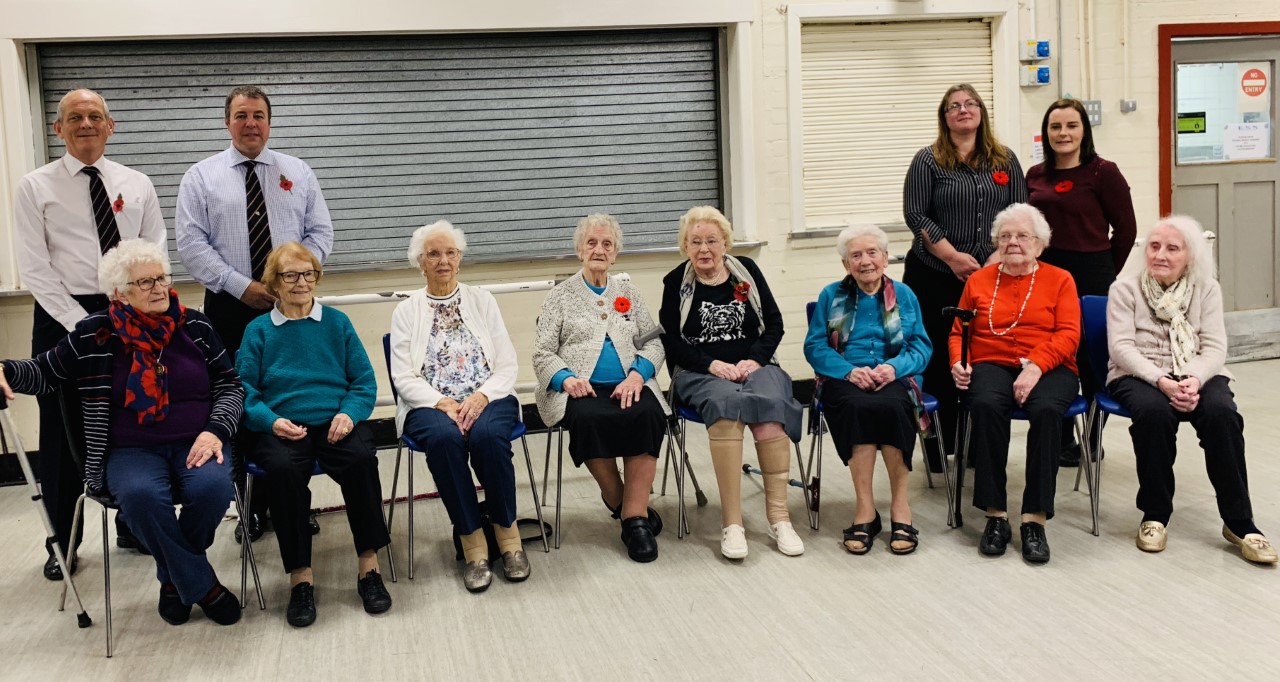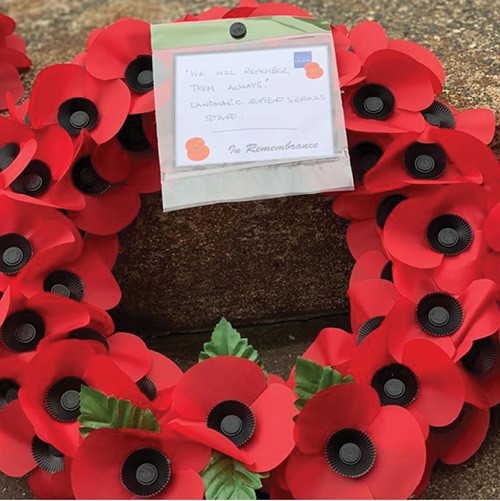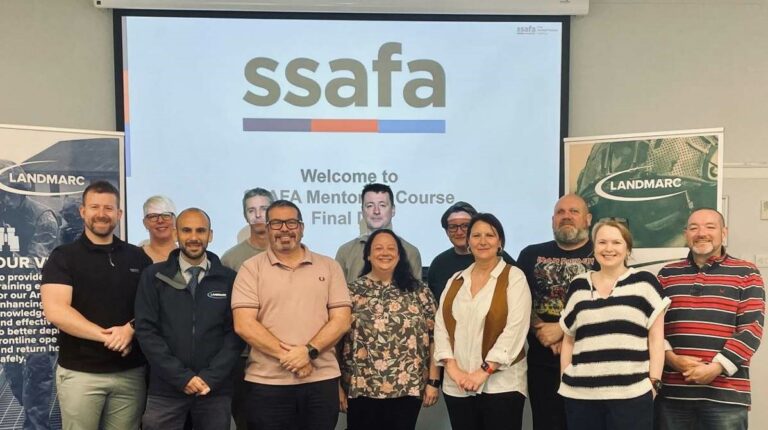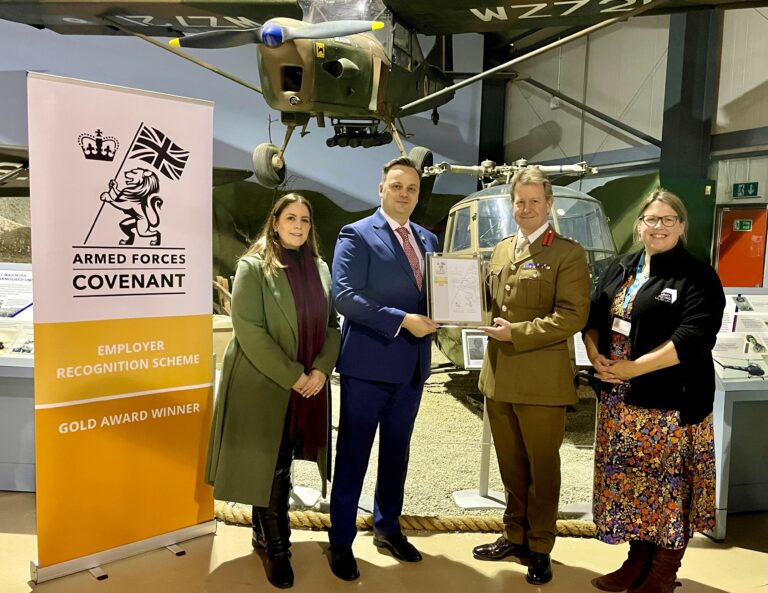This year’s annual Armistice Day service, in honour of the ladies who worked at Swynnerton Training Camp when it was a munitions factory during World War Two, held a special poignancy as family, friends, employees and local residents gathered to remember all those lost in conflict since the 100-year anniversary of the ending of the Great War.

The Swynnerton Roses. Left to right: Kate Astbury, Primrose Patman, Joan Key, Joyce Clarke, Barbara Botfield, Alice Heath, Margaret Machin, Dorothy Jollie and R Major (Ret’d) Jim Salisbury with Maj (Ret’d) Richard Slaney, DIO Training Safety Officer Nesscliff, Sarah Butler, Team Manager, Landmarc, and Sam Williams, Team Administrator, Landmarc.
Hosted by Landmarc Support Services (Landmarc) and the Defence Infrastructure Organisation (DIO) and supported by ESS, the event is now in its 18th year and saw eight surviving ladies, fondly named the ’Swynnerton Roses’, return to the camp to join more than 200 guests to remember the sacrifice made by so many.
This year also enabled visitors to visit the small museum on the camp, created by Landmarc employees Dave Hargreaves, Basil Fielding and Anthony Small, which charts the fascinating history of life on the camp during the War and beyond.
Barbara Botfield began working at the camp in 1940 when she was just 16 and has been to every single ‘Roses’ reunion. Barbara said, “I was employed filling detonators. We didn’t realise how dangerous the work was at the time. You just got on with it really.”
For Joyce Clarke, who is now 93, this was only her second time at the event. She remembers the hard work and the early starts in the morning.
“I worked here from when I was 18 to 20 and used to have to make the journey from Hanley by bus to start the early shift. My mum used to knock on the ceiling under my bedroom to wake me up in the mornings at 4 am so that I would get to work on time!”
Another Rose, Alice Heath, who will be 99 in February and lives in Stone, remembers the time one of the detonators exploded while the ‘girls’ where working. Thankfully no one was hurt but as Alice said, “We were all left a bit shook up after that and reminded that this was not nice work at all, but essential for the war effort.”
Joan Key’s role was organising the wages for the Roses, as at fifteen she was too young to work directly with the ammunitions. Joan said, “There was always something going on at the camp. I remember dancing with the American GIs, right here in the canteen where we are having lunch. They were exciting, but dangerous times.”
Major (Ret’d) Jim Salisbury, DIO’s Training Safety Officer at the camp, who organised the event with Facilities Manager Eleanor Shea and Team Administrator Sam Williams from Landmarc said, “It’s always a pleasure to invite the Roses back to camp each year. Back in the 1940s, their contribution to the war effort went largely unnoticed – carried out in secret with little recognition. So it’s wonderful to be able to say a public thank you and recognise the part they played in keeping our country safe.
“We were delighted this year to be joined by Primrose Patman who will be 100 next April. It was Primrose’s first time at the event and we were able to present her with the special commemorative brooch given in recognition of ammunition workers and their efforts during the War.
“We also remember with pride those Roses that are no longer with us, including Ethel Parker, who sadly passed away at the age of 100 this year and Martha May Whitehouse who died last year, but was represented by her sons Stephen and Grenville Wood, marking the first time the family had attended.
“This year, we also had some fine military music for our service and during lunch, kindly provided by the cadet band of the Staffordshire Air Training Corps, with the North West Sea Cadets joining us on parade and helping us and ESS to serve lunch to all our guests.
“The support of the staff from DIO, Landmarc and ESS cannot be understated for all the hard work, effort and attention to detail that goes into this important event prior to, during and after. This is always done from the heart as it is felt that what the ladies from the ‘Roses’ started in the war years we carry on in support of defence.”




